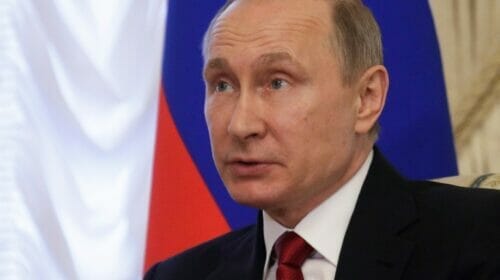Atheism and the Challenge of Deconversion in Black South Africa
While living with the mum, Thamsanqa met some students from a local seminary who were evangelizing in the communities and they lured him and some of the family members into joining the Church of the Nazarene:
“It was in 1982, when I was exactly 9 years that a group of Theological Seminary (College) Students came around on a Saturday. They had various musical instruments and they were speaking an accented IsiZulu, their pronunciation of the language together with their musical instruments attracted my attention. They told us about Jesus who loved us and who would like small children to attend Sunday school. They were coming from the Bible College which most of the kids wanted to attend.
The building was magnificent and there were some children wearing nice clothes who were playing on manicured lawns. I imagined that if their Jesus would allow me to access that luxury, he would be my Jesus too! I took them to our one room backroom which we called home, to my mom and my sisters.
I told my mom how much I would love to go with them to the church. Months later, the whole family, except my elder sister, joined the Church of the Nazarene. I was active in the church. At twelve years I became a Sunday school assistant teacher, and at 15, I became a member of the Regional Youth Committee”
Thamsanqa’s interest in church activities started to wane when he joined a local youth group involved in the fight against apartheid. He could not reconcile the injustices of apartheid and the supposed goodness of the christian god. Apparently this was when Thamsanqa’s process of deconversion started:
“Things changed when in 1987 I became conscious of the Apartheid system and joined the ranks of the youth who were determined to fight the oppression. There were other groups of black people who claimed to fight against the same system, but they were doing all in their power to destabilize our struggle.
I got myself involved in the then so called black on black violence, that in 1988 my mom had to send me packing. I stayed with her distant cousins in rural villages far away from my birth place of Durban. I could not take it, so early 1989 I went back to my place, and enrolled myself in a school and rejoined the student politics”
At the end of apartheid, Thamsanqa’s mother persuaded him to ‘go back to god’ and he obliged. However this was at a time of historic changes within the Christian church in South Africa. Many youths in the black communities had become disillusioned and were leaving the ‘established Pentecostal churches’:
“I became a water baptized born again Christian. It was going to be a long journey of fire spitting evangelism, serious bible studying. By 1999 I had become a sort after youth preacher in and around my area. I had studied the bible and the church history more than some of the pastors and preachers I knew. I began to be uncomfortable with my church – the Apostolic Faith Mission. I tried conferring with people who understood god the way I understood him. It was a time of great exodus of militant youths from the established Pentecostal churches, the Assemblies of God, the Apostolic Faith Mission, etc”
Thamsanqa’s born-again-Christianity made him more curious and suspicious of religions particularly the prosperity gospel churches. Instead of drawing him closer to god it made him more doubtful of divine formulations particularly when he became aware of the unwholesome practices of the different churches that were springing up in the country:
“In early 2000, I had more questions than answers about god. I associated this feeling with the devil and had to go on lengthy fasting and prayer to rid myself of the demons of doubt and unbelief. When I left Durban for Gauteng, I had time to be on my own and to live in a place where no one knew me. I attended any and every church in the city. And it struck me that Johannesburg was full of churches. These churches were run by Africans from the neighbouring countries as far away as West Africa! They were all preaching prosperity. They were inciting people to give until they had nothing in their purses”
Like many atheists across Africa, accessing the internet was the last blow that broke the Camel’s back in Thamsanqa’s deconversion process because he stumbled at information that clarified his mistaken ideas about atheism and emboldened him to take his skepticism to its logical conclusion:
“My questioning of the faith grew! I searched online for materials related to prosperity gospel, until I came across some information about Atheism. I had known atheists all of my Christian life, but always regarded them as Satanists. Now to discover that there were people who did not accept the concept of a deity and were not Satanists blew my mind. I did a lot of research and discovered that quite a number of highly educated people were not religious. I became skeptical but I was not an all-out atheist. The comparison of countries’ ‘poverties’ and underdevelopment with their level of religiosity worried me. I cried for my continent. My days of struggle were over. I began to see religion as a weapon in the hands of the oppressor. I remembered the quotations attributed to great African liberators:
‘Decolonisation of the mind’. ‘When white people arrived, Africans had land and cattle, after embracing the white men’s religion they were left with the bible and the white men had the gun, the cattle and the land’. I became angry with myself because I had never seen myself as a stupid person. I wondered how it was possible for me to be fooled for all these years of my life? I am married now for ten years, but I have been an atheist fully for five years. I married from my Christian background. It has been so difficult for my wife to understand this. My sisters (my parents died long ago) still think I am possessed by the devil. My wife thinks the same. I worry about my children, but I am waiting till when they are old enough so that I will explain to them and let them decide as I did”
Thamsanqa has joined an online group, the Ex-Christians of Africa that provides a sense of community to Africans who have deconverted from Christianity. The group supports those who are deconverting with the information which they need to exercise their doubt freely and to arrive at a dignified position on religion. However, it is important to note that the weapon of religion was not only used by the colonizers of Africa.
Those who governed African kingdoms before the colonial era used religious and magical beliefs to legitimize their rule. The political managers of post-colonial African states have used – and are using religion – the Bible and the Qu’ran in the appropriation of power. In fact the challenges which atheists in South Africa and in other parts of the region face today have more to do with the misconceptions of local believers, the intolerance and hatred of African fanatics, the hostile actions and antagonistic reactions of family and community members and the deployment of state power and authority by home grown theocrats.



